8 Best Neuroscience Courses for 2025; Learn Online for Free
Whether you want to know how the brain works, how to learn better, understand human behavior and even brain injury and pathologies, we’ve got you covered.

Quick Access:
- Beginner Courses: Fundamentals of Neuroscience, Synapses, Neurons and Brains, Neurobiology of Everyday Life
- Specific Topics: Learning, Behaviour, Dementia, Multiple Sclerosis, Traumatic Brain Injury
- Advanced Courses: Medical Neuroscience, Simulation Neuroscience.
Not everyone can be a brain surgeon, but there are hundreds of free and paid open online courses to teach you how the brain works, how you can apply that knowledge to your learning process, understand human behavior and even deal with brain injury and pathologies. But, how to choose the best neuroscience courses?
I’ve done the work of choosing a course for you. Class Central is a search engine for online courses, with more than 600 courses from many providers in our Neuroscience subject. For this update, I’ve added more highly-rated courses, using ratings and reviews on Class Central and provider sites to find the best. And even better, all of these courses are free or free to audit!
Our top courses cover a range of sub-fields. Many of the courses mentioned here are on our Best Online Courses of All Time list.
Click on the shortcuts for more details:
- Why You Should Trust Us
- Top Picks
- What is Neuroscience?
- Courses Overview
- How We Made Our Picks and Tested Them
Why You Should Trust Us
Class Central, a Tripadvisor for online education, has helped 60 million learners find their next course. We’ve been combing through online education for more than a decade to aggregate a catalog of over 200,000 online courses and 200,000 reviews written by our users. And we’re online learners ourselves: combined, the Class Central team has completed over 400 online courses, including online degrees.
I’ve personally completed over 200 online courses in a variety of topics including neuroscience.
Here are our top picks
Click to skip to the course details:
What is Neuroscience?
According to Wikipedia, neuroscience is the scientific study of the nervous system. It covers the cells of the brain and nervous system, how they work and communicate, and what can go wrong. Psychology, physics, computer science, chemistry, medicine, statistics, and mathematical modeling, as well as various sub-branches of biology can be involved. With over 15,700 followers, Neuroscience is a popular subject amongst Class Central members.
Courses Overview
- All the courses are free or can be audited for free
- 7 courses offer a certificate of completion
- Courses in this guide have more than 5 million enrollments and views
- The most featured provider is Coursera with 4 courses.
Best Beginner Neuroscience Course (Harvard)
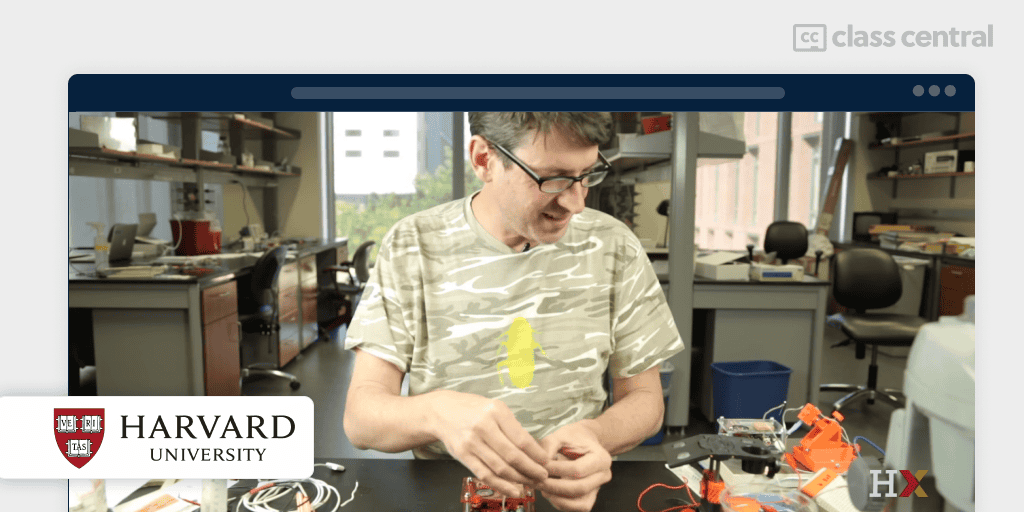
Fundamentals of Neuroscience, Part 1: The Electrical Properties of the Neuron is the first course in the Fundamentals of Neuroscience XSeries created by Harvard University, with over 500K enrollments. Its focus is on how neurons communicate via electrical signals. The final week includes hands-on experiments to deepen your understanding of how the nervous system works.
Learner Daniel Reid says, “…This course will greatly help me with my passion in mental health and understanding the workings of the brain …”
Later courses in the XSeries focus on Neurons and Networks and The Brain.
| Institution | Harvard University |
| Provider | edX |
| Level | Beginner |
| Instructor | David Cox |
| Time Commitment | 15-25 hrs |
| Enrollment | 597K |
| Rating | 4.8 |
| Cost | Free audit |
| Quizzes/Assessment Items | Yes, behind paywall |
| Certificate | Paid |
Best Course on Neurons and Synapses (Hebrew University of Jerusalem)
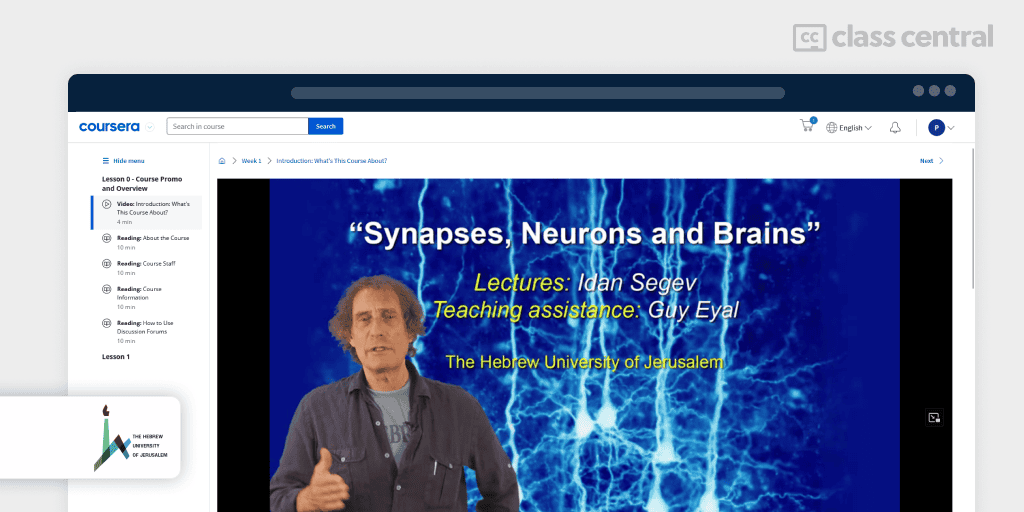
Synapses, Neurons and Brains explores the fundamentals and advanced concepts of brain function. It covers the excitement in current brain research, the basic building blocks of the brain such as neurons and synapses, and their electrical properties. The course also explains how these elements contribute to learning, memory, and overall brain function, including computational aspects and plasticity. The Blue Brain Project is discussed, along with broader topics such as brain and art, consciousness, and free will. I found this course fascinating!
“I’ve taken quite a few courses through www.coursera.org, and they’ve all been excellent, but Synapses, Neurons, and Brains was exceptional; absolutely spellbinding…” – Anonymous Class Central learner
| Provider | Coursera |
| Institution | Hebrew University of Jerusalem |
| Instructor | Idan Segev |
| Workload | 19 hours |
| Enrollment | 79.1K |
| Rating | 4.8 (1200) |
| Cost | Free audit |
| Quizzes/Assessment Items | Yes, free access |
| Certificate | Paid |
Best Course on Everyday Brain Function (The University of Chicago)
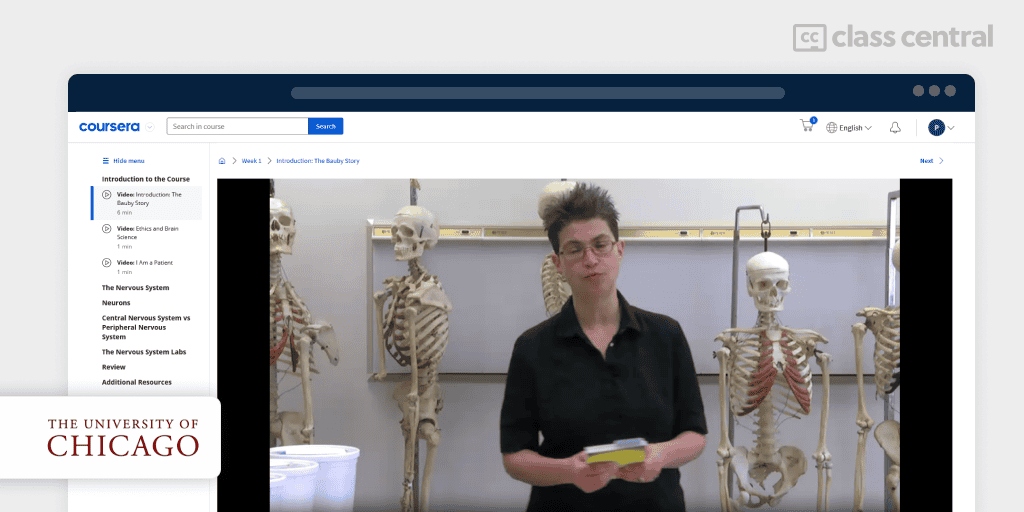
Learn how the nervous system influences behavior, everyday brain use, and the explanation of common neurological issues with Understanding the Brain: The Neurobiology of Everyday Life. It covers topics from neuroanatomy and neuronal communication to perception, voluntary movements, and abstract cognitive functions, providing a comprehensive understanding of functional human neurobiology.
“This is an AMAZING course. It’s complete, well taught, and very interesting…” – Cassiano Rodrigues, Class Central learner.
| Provider | Coursera |
| Institution | The University of Chicago |
| Instructor | Peggy Mason |
| Workload | 27 hours |
| Enrollment | 339.7K |
| Rating | 4.9 (2.8K) |
| Cost | Free audit |
| Quizzes/Assessment Items | Yes, free access |
| Certificate | Paid |
Best Course Relating Neuroscience to Learning (Deep Teaching Solutions)
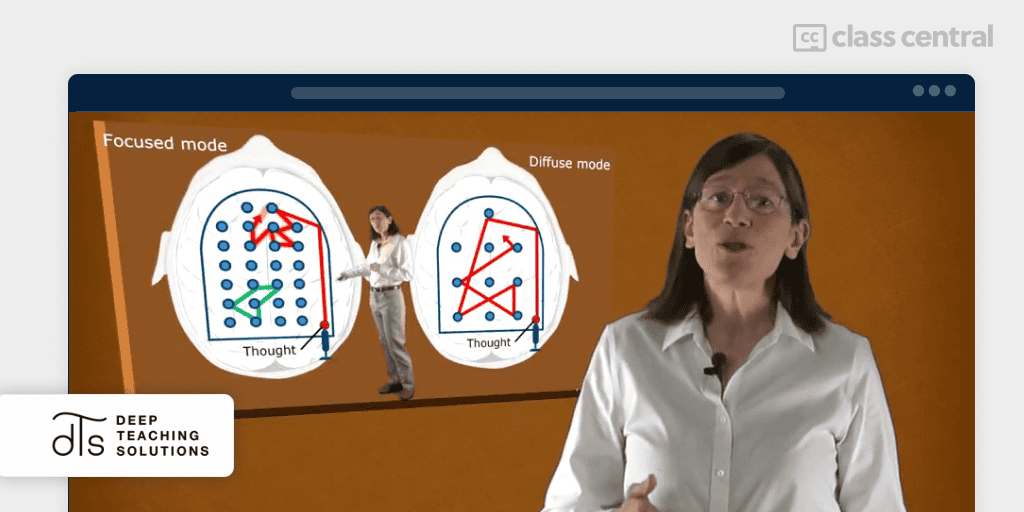
Learning How to Learn: Powerful mental tools to help you master tough subjects is one of the most popular online courses in the world, with more than 3.7 million learners. More are enrolled in other language editions. Although the course focus is on learning, it draws on neuroscience to explain how to make the most of your brain’s processes to learn more efficiently. According to Rebecca Judd’s in-depth review, “The course’s roots are in neurology and science. At every step the professors explain not just how to learn better, but why these concepts work. They manage to translate their deep, scientific expertise into explanations that any lay-person can understand.”
I am among the hundreds, if not thousands, of learners who wish they could have taken this course sooner in life. Or if your time is very limited, you can take Learn Like a Pro: Science-Based Tools to Become Better at Anything (2-4 hours) from Barbara Oakley and Olav Schewe.
| Institution | Deep Teaching Solutions |
| Provider | Coursera |
| Level | Beginner |
| Instructors | Terrence Sejnowski and Barbara Oakley |
| Workload | 15 hrs |
| Enrollment | 3.7M |
| Rating | 4.9 |
| Cost | Free audit |
| Quizzes/Assessment Items | Yes, free access |
| Certificate | Paid |
Best Courses to Explore Brain Injury and Pathologies (University of Tasmania)
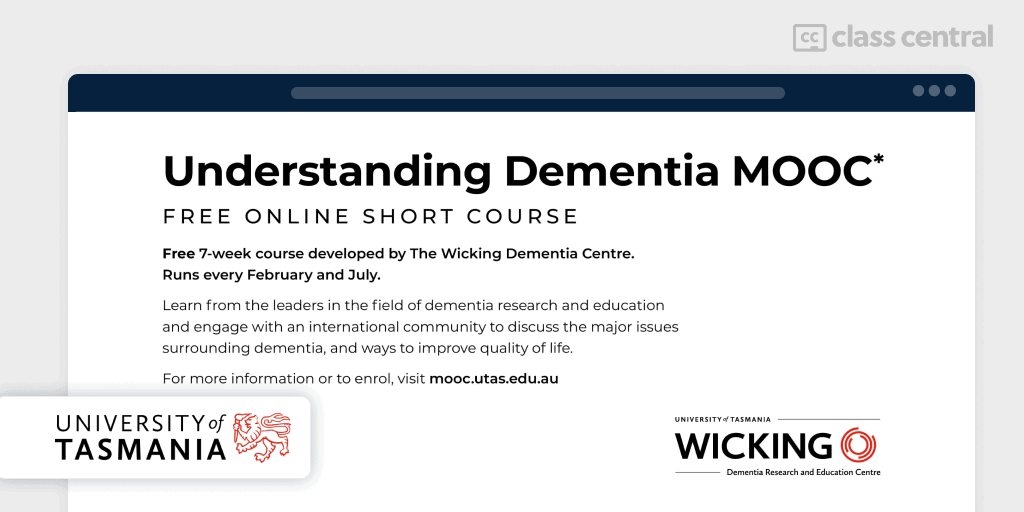
The topic of neuroscience would not be complete without mentioning the top-quality free courses (with free certificates) produced by the University of Tasmania. They all start with an explanation of brain structure and normal function before exploring issues such as dementia, traumatic brain injury and multiple sclerosis.
Understanding Dementia has over 14,000 reviews on Class Central. As the world’s population ages, the incidence of dementia is constantly increasing. Learn about its symptoms, causes, and how to care for people with dementia with this course and its shorter sister course, Preventing Dementia. An anonymous reviewer says, “I am now recommending the course to friends and family and basically anyone who will listen.” And here is an in-depth review.
| Institution | Wicking Dementia Research and Education Centre |
| Provider | University of Tasmania |
| Level | Beginner |
| Instructor | Prof Fran McInerney |
| Time Commitment | 21 hrs |
| Rating | 4.9 |
| Cost | Free |
| Quizzes/Assessment Items | Yes, free access |
| Certificate | Free |
Understanding Multiple Sclerosis (MS) is another course that explains how the brain and nervous system work before delving into pathology. More than 1000 learners have awarded this course an average of 4.9 stars. See my in-depth review.
| Institution | Menzies Institute for Medical Research |
| Provider | University of Tasmania |
| Level | Beginner |
| Time Commitment | 12 hrs |
| Rating | 4.9 |
| Cost | Free |
| Quizzes/Assessment Items | Yes, free access |
| Certificate | Free |
Understanding Traumatic Brain Injury (TBI) is the latest offering from the University of Tasmania. With more than 1500 reviews on Class Central, it’s obviously another high-quality course. You never know when the knowledge from this course may come in handy, whether you’re a health professional, sports official, family member, or maybe you have suffered a head blow or concussion from a fall or traffic crash. Read my in-depth review here.
| Institution | Wicking Dementia Research and Education Centre |
| Provider | University of Tasmania |
| Level | Beginner |
| Time Commitment | 10 hrs |
| Rating | 4.9 |
| Cost | Free |
| Quizzes/Assessment Items | Yes, free access |
| Certificate | Free |
Best Course Relating Neuroscience to Behaviour (Professor Dave Explains)
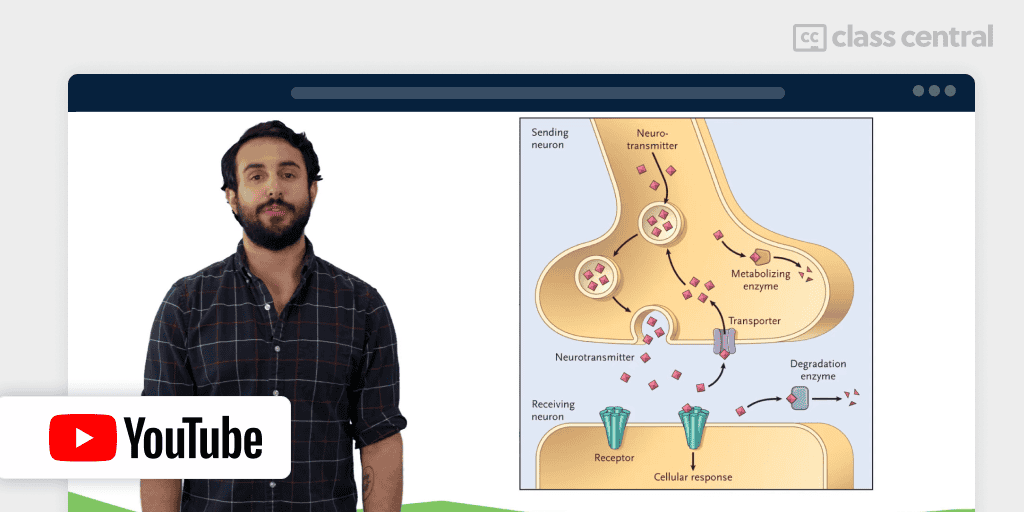
Biopsychology by Professor Dave Explains teaches us how the structure and physiology of the brain relate to functions including emotions, the five senses, drug addiction, and psychiatric disorders.
“All concepts Very well explained, with the help of animations and flowcharts and drawings…” – Pramila Sharma, Class Central learner.
| Provider | YouTube |
| Level | Beginner |
| Channel | Professor Dave Explains |
| Instructor | Dave Farina |
| Time Commitment | 15 hrs |
| Views | 184K |
| Cost | Free |
| Quizzes/Assessment Items | No |
| Certificate | No |
Best Advanced Neuroscience Course (Duke University)
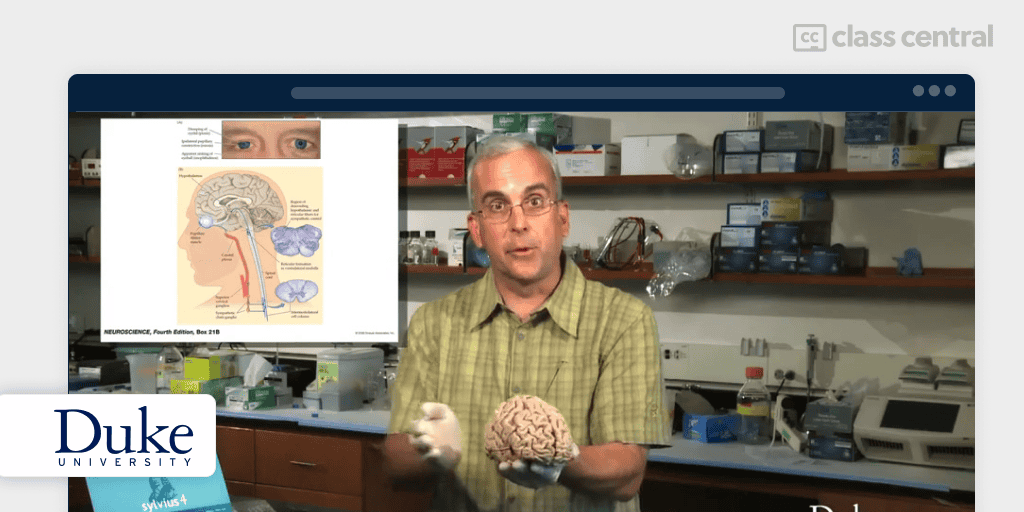
Medical Neuroscience by Duke University has more than 300K enrollments. This course recommends a college-level background in cellular and molecular biology and general knowledge of systems physiology and human anatomy. In week 1, a preliminary quiz allows students to self-assess their readiness for this class. Even though I don’t have college biology, knowledge I’ve gained from several biology and health online courses helped me pass the quiz first go.
The course is divided into five units: neuroanatomy, neural signaling, sensory systems, motor systems, and brain development.
Although the course information says 71 hours of material, in the first week Professor White mentions that a typical learner may need to spend 16-20 hours per week including 4-6 hours of video tutorials, so it’s not for the faint-hearted. But with a 4.8 star rating on Class Central, it’s clear that this is a rewarding course. In the words of Marina Buryak, “If you are looking to learn from a gifted professor, if you want to walk away with a lot of knowledge, if you need a new way of looking at neuroscience, or if you want to be hooked on the subject, look no further.”
| Institution | Duke University |
| Provider | Coursera |
| Level | Advanced |
| Instructor | Leonard E. White |
| Time Commitment | 71 hrs |
| Enrollment | 348K |
| Rating | 4.8 |
| Cost | Free audit |
| Quizzes/Assessment Items | Yes, free access |
| Certificate | Paid |
Best Course on Neuron Simulation (École Polytechnique Fédérale de Lausanne)
If you already understand differential equations and can program (preferably in Python), Simulation Neuroscience can help you understand brain function, behavior, and disease through simulation. You’ll use state-of-the-art modeling tools including the HBP Brain Simulation Platform and learn how to integrate diverse neuroscience data into computer simulations.
Syllabus:
- Overview and principles of simulation neuroscience
- Neuroinformatics
- Modeling Neurons
- Modeling Synapses
- Constraining Neuron Models with Experimental Data
- Practical Application: running and interacting with models.
“Magnificent course where you will learn to use the Human Brain Project tools to simulate neurons…” – Pablo O.O., Class Central learner.
| Provider | edX |
| Institution | École Polytechnique Fédérale de Lausanne |
| Instructor | Henry Markram, Idan Segev, Sean Hill, et al |
| Workload | 30-48 hours |
| Enrollment | 14.4K |
| Rating | 5.0 |
| Cost | Free audit |
| Quizzes/Assessment Items | Free practice questions, graded items behind paywall |
| Certificate | Paid |
How We Made Our Picks and Tested Them
Trying to find “the best” can be daunting, even for those of us who live and breathe online courses. Here’s how I approached this task.
First, I combed through Class Central’s Catalog and the internet to find a variety of courses, some with certificates. You don’t need to enroll in a university to learn about neuroscience.
I extracted information from course syllabi and reviews, and compiled their ratings, leveraging the Class Central database with its thousands of course ratings and reviews written by our users as well as course provider ratings. I watched some course videos to sample courses I hadn’t already taken.
Then, I defined the scope for these recommendations. A neuroscience course can cover various topics, so I chose top courses from a range of sub-fields:
- The basics: If you’ve never studied neuroscience before
- How neuroscience can help us learn more quickly and easily
- Understanding how brain function relates to behavior and psychology
- What happens when the brain doesn’t work perfectly
- Modeling and simulation
- Advanced neuroscience: if you already know some cell biology, physiology, and anatomy.
Ultimately, I used a combination of data and my own judgment to make these picks. I’m confident these recommendations will be a good way to learn neuroscience.









Ravi Srinivasan
Great stuff – need to look at the YT course, sounds interesting.
I took some of the courses too – my top 3:
1. Duke University course – it is absolutely fantastic! The Professor is superb and the course is well-rounded in all aspects. One of my all-time fav MOOCs
2. Learning How to Learn – more applied stuff – but very useful
3. Wicking Dementia TBI – less practical for the lay person, but a very well made course..
Dr Muktadir Abdul kadar Khan
Excellent courses it take lots of pain and time to build up a course module,I am really thankful to the entire team for providing all these important courses free of cost .
Edgar Ramos JR
I am interested in the classes